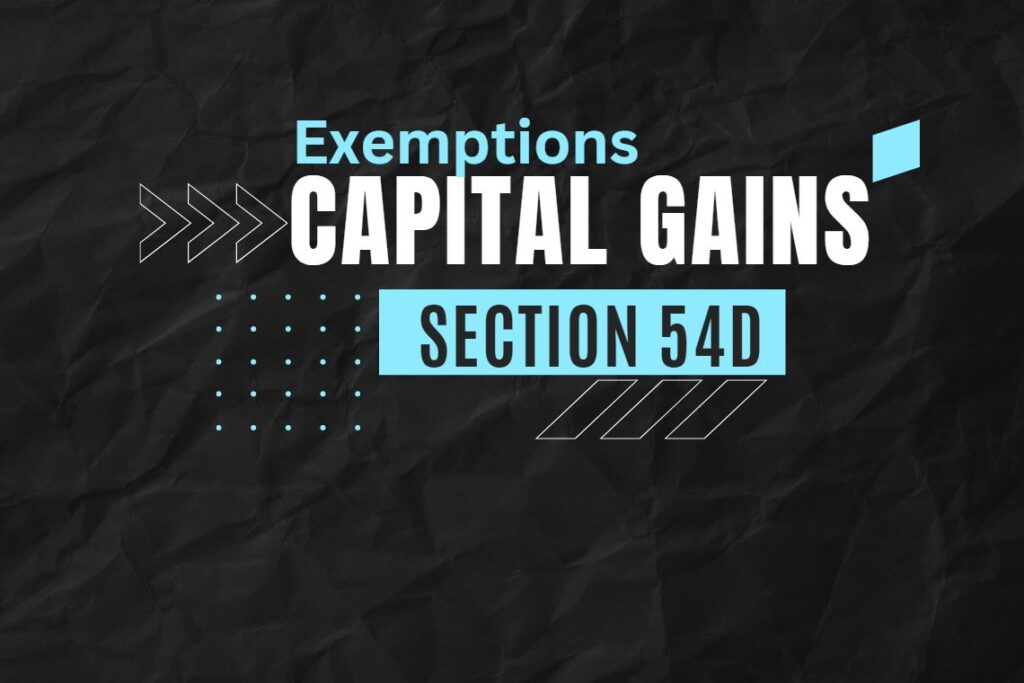(1) Capital gains tax is an important aspect of the Indian Income Tax Act, 1961. Section 46A of the act specifically deals with the capital gains arising from the purchase of a company’s own shares or other specified securities. It is crucial for individuals and companies to understand the provisions of this section to ensure compliance with the tax laws.
(2) When a company purchases its own shares or specified securities, it is generally done through a buyback or redemption process. This can lead to capital gains for the shareholders who sell their shares back to the company. However, these gains are subject to taxation as per the provisions of Section 46A.
(3) The capital gains tax under Section 46A is applicable to both resident and non-resident shareholders. The tax liability arises from the difference between the sale consideration received by the shareholder and the cost of acquisition of the shares or securities. The capital gains are classified as short-term or long-term depending on the holding period of the shares.
(4) For short-term capital gains, the tax rate is the applicable rate as per the individual or company’s income tax slab. In the case of long-term capital gains, the tax rate is 20% with indexation benefit. Indexation allows adjusting the cost of acquisition for inflation, thereby reducing the tax liability.
(5) It is important to note that the tax liability arises only when there is a transfer of shares or securities. If the shareholder continues to hold the shares or securities after the buyback or redemption, there is no immediate tax liability. However, when the shareholder eventually sells the shares in the future, the capital gains will be calculated from the original purchase date.
(6) To calculate the capital gains, the shareholder needs to determine the cost of acquisition of the shares or securities. This includes the purchase price, brokerage charges, stamp duty, and any other incidental expenses. Additionally, if the shares were acquired through inheritance or gift, the cost of acquisition would be determined differently.
(7) It is advisable for companies and shareholders to maintain proper documentation and records of the purchase and sale transactions. This includes invoices, receipts, contract notes, and other supporting documents. In case of any scrutiny or audit by the tax authorities, these records will serve as evidence of the transactions and help in determining the tax liability accurately.
Provisions of Section 50C
Section 50C of the Indian Income Tax Act, 1961, is applicable to the computation of capital gains in real estate transactions, specifically for the sale of land or building or both. It is aimed at ensuring that the fair market value (FMV) of the property is appropriately considered for taxation, even if the actual sale consideration is lower.
Here’s how the computation of capital gains works under Section 50C:
Applicability:
Section 50C applies when an individual or entity transfers a capital asset, which is land or a building or both, and the sale consideration received or accruing to the seller is lower than the value adopted or assessed by the Stamp Valuation Authority for the purpose of determining stamp duty.
Fair Market Value (FMV):
The FMV of the property is the key factor in the computation of capital gains under Section 50C. This FMV is determined based on the rates fixed by the Stamp Valuation Authority for stamp duty purposes.
Comparison of Sale Consideration and FMV:
If the sale consideration received or accruing to the seller is lower than the FMV determined by the Stamp Valuation Authority, then the FMV is deemed to be the sale consideration for the purpose of computing capital gains.
- If Sale Consideration < FMV (Stamp Duty Value): The FMV becomes the sale consideration, and capital gains are calculated based on this higher value.
- If Sale Consideration ≥ FMV: The actual sale consideration is used for capital gains computation.
Capital Gains Calculation:
The capital gains are calculated as follows:
Capital Gains = Sale Consideration – Cost of Acquisition – Cost of Improvement – Exemption (if applicable)
- The cost of acquisition includes the actual purchase price of the property.
- The cost of improvement includes expenses incurred to improve the property.
- Exemptions, such as those under Section 54 for reinvestment in another property, can be claimed if the conditions are met.
Tax Rate:
Capital gains from the sale of real estate are taxed at either short-term or long-term capital gains tax rates, depending on the holding period. If the property is held for 24 months or less, it’s considered a short-term capital asset, and the gains are taxed at the applicable short-term capital gains rate. If held for more than 24 months, it’s considered a long-term capital asset, and the gains are taxed at the applicable long-term capital gains rate.
Reporting and Compliance:
Taxpayers are required to report the capital gains and the sale consideration in their income tax returns. Proper documentation, such as property sale agreements and valuation reports, should be maintained.
Company liable to pay Tax on Distributed Income to Shareholders [Section 115QA(1)]
Notwithstanding any thing contained in any other provisions of this Act (which also include section 46(A) the domestic company in addition to tax which it is required to pay on its total income shall be charged to additional income-tax @20% on the distributed income subject to the following:
(1) The domestic company buys back its own shares whether listed or unlisted.
(2) Such shares must be bought from the shareholder.
Distributed income means the consideration paid by the company on buy-back of shares as reduced by the amount which was received by the company for issue of such shares determined in the manner as may be prescribed.
Income received by Shareholder on Buy Back of Share by the Company to be Exempt [Section 10(34A)]
When a company decides to repurchase its own shares from shareholders, it is known as a buyback of shares. This can happen for various reasons, such as to return surplus cash to shareholders or to boost the value of remaining shares.
Under Section 10(34A) of the Income Tax Act, the income received by a shareholder on the buyback of shares by the company is exempt from taxation. This means that any profits or gains made by the shareholder from the buyback are not subject to income tax.
This exemption applies to both resident and non-resident shareholders. However, there are certain conditions that need to be met in order to avail of this exemption. The buyback must be approved by the company’s board of directors and must be in accordance with the provisions of the Companies Act.
It is important for shareholders to understand the tax implications of a buyback of shares. By availing of the exemption under Section 10(34A), shareholders can avoid paying tax on the income received from the buyback.
If you are a shareholder considering a buyback of shares, it is advisable to consult with a tax professional who can guide you through the process and help you understand the tax implications.

![Computation of Capital Gains [Section 46A]](https://incometaxmanagement.in/wp-content/uploads/2023/09/Computation-of-Capital-Gains-Section-46A-1024x683.jpg)










